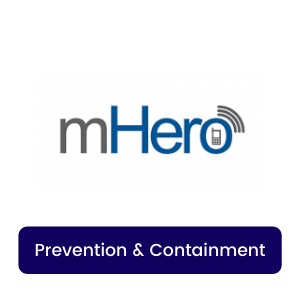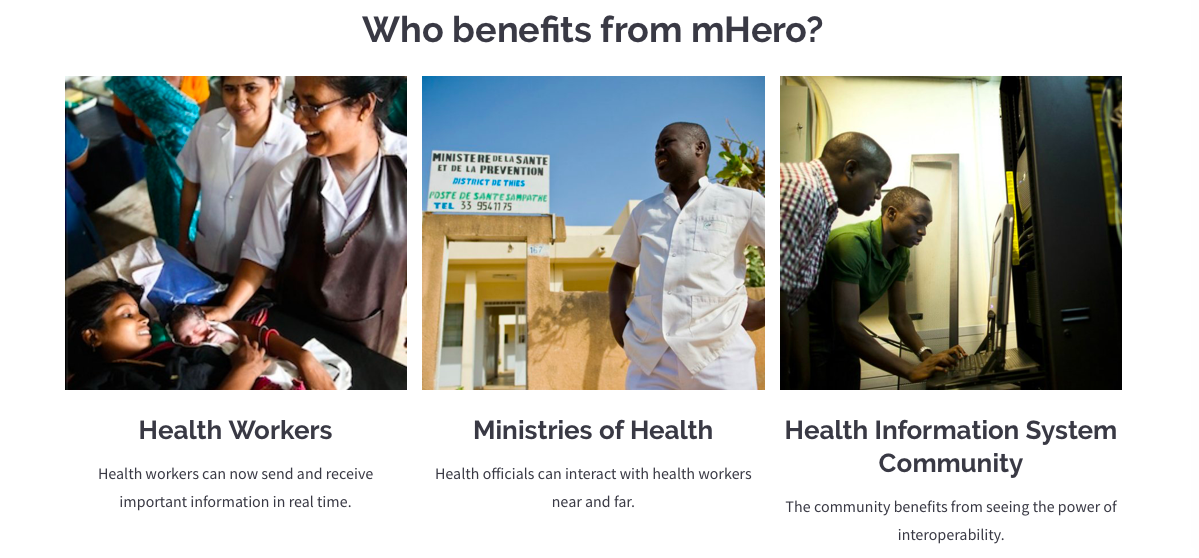mHero
mHero
Health officials can use mHero to: communicate both routine and urgent messages to health workers; target messages to health workers based on profession, location, or skill set; collect critical information that powers resilient health systems, including stock levels, routine and one-time assessments, and validation of health worker and facility data; build capacity and provide support to health workers, to give them the information, skills, and encouragement to deliver quality health services. mHero’s origin and ongoing use and development illustrates how the platform is flexible, scalable, and sustainable by governments in low- and middle-income countries.

USE CASES
IntraHealth International and UNICEF created mHero in August 2014 to support health-sector communication during the Ebola outbreak in Liberia. The original version of mHero connected Liberia's health workforce information system, iHRIS, with RapidPro, a platform that delivers basic text and audio messages. The use of RapidPro made it possible to reach most Liberian frontline health workers who, at the time, had only basic mobile phones. Since the end of the Ebola crisis, the Ministry of Health and Social Welfare in Liberia has integrated the platform into its health information system infrastructure to meet ongoing communication needs for a variety of health services. Sierra Leone and Senegal have also implemented mHero.
HIGHLIGHTS:
Lessons learned from the Ebola response clearly show that fast, informative communication to frontline health workers, and immediate, precise case reporting from them, were useful in engaging communities, managing rumours, and mitigating public health threats. The mHero platform can be used for myriad government health communications needs, segmenting health workers into specific groups to:
- Coordinate health promotion strategies and public health emergency responses.
- Train health workers on infection prevention and control and risk communication.
- Test health worker knowledge of COVID-19 responses through mini-quizzes.
- Report suspected COVID-19 cases and other high-priority diseases.
- Relay unanticipated stock outs of essential commodities such as sterile gloves, masks, and respirators.
- Reveal local health and safety concerns, including mental health and physical risks.


 Locations
Locations